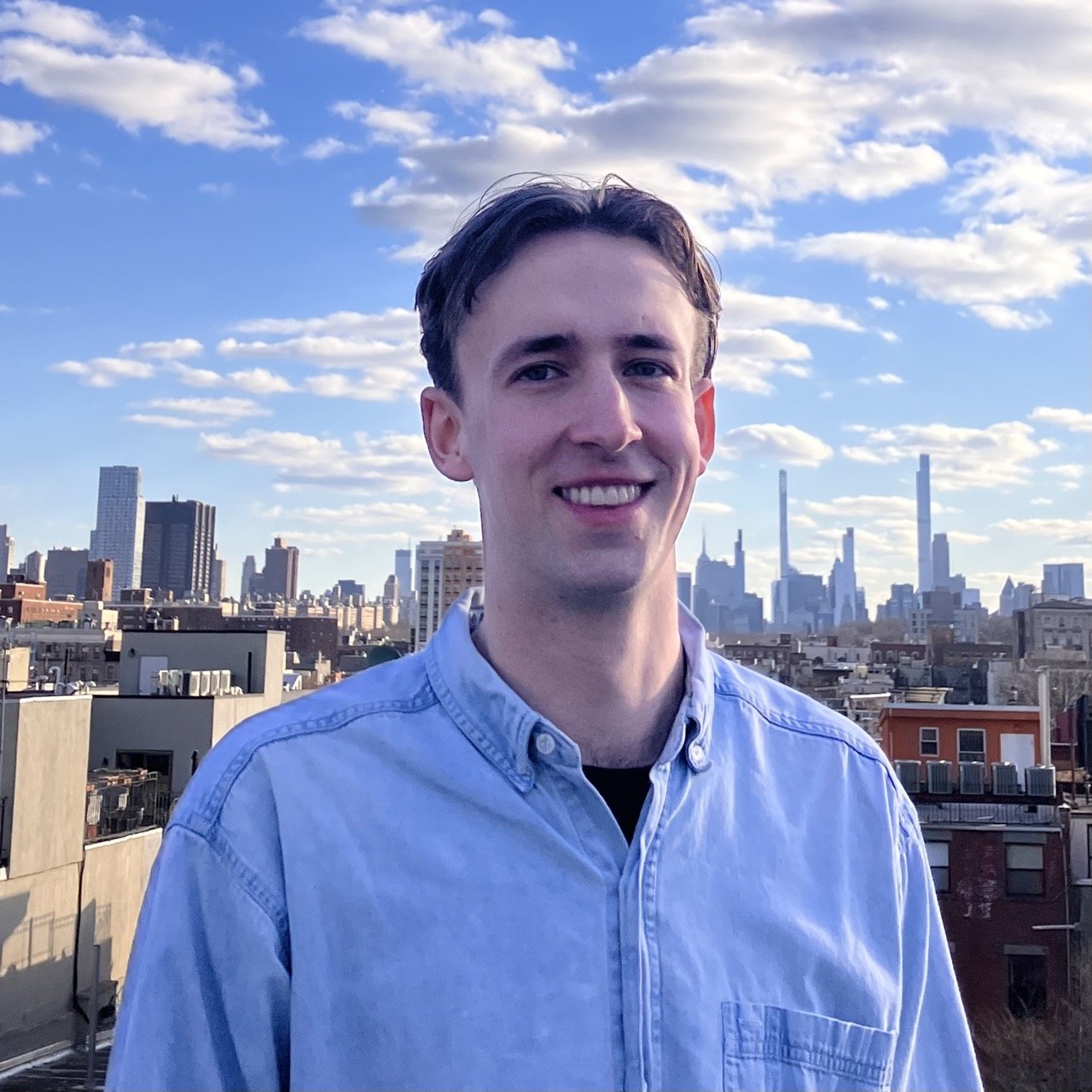Dustin T. Duncan, Director
Dustin T. Duncan, ScD is Associate Dean for Health Equity Research and Associate Professor of Epidemiology at Columbia University Mailman School of Public Health. Dr. Duncan is an internationally recognized Social and Spatial Epidemiologist.
Dr. Duncan is a sought-after global thought leader and innovative researcher. His pioneering research broadly seeks to understand how social and contextual factors especially neighborhood characteristics influence population health. Dr. Duncan’s intersectional and health equity-based research focuses on gay, bisexual and other sexually minoritized men and transgender people of color across the African diaspora including in the U.S., Caribbean and Africa.
Dr. Duncan’s work appears in leading public health, epidemiology, medical, geography, criminology, demography, and psychology journals. Working in collaborations with scholars across the world, Dr. Duncan has over 200 high-impact articles (>120 first or senior-authored), book chapters and books cited over 8,900 times; Dr. Duncan’s research has appeared in major media outlets including U.S. News & World Report, The Washington Post, The New York Times and CNN. Dr. Duncan’s work has been funded by the National Institutes of Health, the Centers for Disease Control and Prevention, the HIV Prevention Trials Network, the Robert Wood Johnson Foundation, the Verizon Foundation, and the Aetna Foundation.
Dr. Duncan is an award-winning leader who have received several scientific contribution, mentoring and leadership awards including from the National Academy of Medicine (NAM), the Harvard University T.H. Chan School of Public Health (HSPH) and the Interdisciplinary Association for Population Health Science (IAPHS). In 2020, Dr. Duncan proudly received the Mentor of the Year Award from Columbia University Irving Medical Center’s Irving Institute for Clinical and Translational Research.
At Columbia, Dr. Duncan also directs Columbia’s Spatial Epidemiology Lab as well as co-directs the epidemiology department’s Social and Spatial Epidemiology Unit and co-directs the Health Equity Core in the HIV Center for Clinical and Behavioral Studies. In addition, Dr. Duncan leads an eponymous foundation in Harlem, New York.
Jessica Contreras,BA, Program Coordinator II
Jessica Contreras, BA (she/her) has dedicated nineteen years to implementing gender-affirming medical service programs in New York City. She is the co-creator of the T.W.E.E.T (‘Transgender Women Entry and Engagement To’) Care Intervention. Ms. Contreras also co-created and implemented ‘TL Teach Back’, an evidence-informed intervention that focused on enhancing engagement and retention in quality HIV care among transgender women of color. She earned her Bachelor of Arts in Human Development and brings to the lab her specialist knowledge of recruitment and engagement with transgender populations.
Byoungjun Kim, Assistant Professor
Byoungjun Kim, MUP, PHD (he/him) is an Assistant Professor in the Department of Surgery & Department of Population Health at New York University Grossman School of Medicine. His research is centered on understanding the relationship between built/social environments and chronic diseases in urban areas, as well as assessing the health impact of place-based policies and programs. Dr. Kim uses a combination of Global Positioning System (GPS) and Ecological Momentary Assessment (EMA) methods to explore nuanced causal mechanisms between neighborhoods and health. He received his PhD under the guidance of Dr. Dustin Duncan from Columbia Mailman School of Public Health, and also holds a Master's degree in Urban Planning from the University of Southern California and a Bachelor's degree in Architecture from Yonsei University.
Alexander Furuya, Research Analyst
Alexander Furuya, (he/him) is currently an Epidemiology PhD student and is interested in using biostatistics to identify social factors affecting vulnerable populations. His work focuses on HIV prevention and treatment among gender and sexual minorities; he is particularly interested in how intersectionality affects health outcomes. Currently, he is analyzing data from the TURNNT cohort to identify key risk factors affecting trans women of color and finding possible interventions to reduce health inequities. He received his Master of Public Health in Biostatistics from Columbia University in 2023.
Cho-Hee Shrader, Postdoctoral Research Fellow
Cho-Hee Shrader, PhD, MPH (she/her) is an NIH T32 Postdoctoral Research Fellow in Global HIV Implementation Science in ICAP at Columbia University. Dr. Shrader’s research explores the intersection of how social networks and neighborhood characteristics impact minority health disparities, such as HIV, stress, and substance use disorder among sexual, gender, and racial/ethnic minority communities. Additionally, Dr. Shrader’s research incorporates implementation science and its influences on HIV prevention intervention success. Dr. Shrader received her PhD in Prevention Science and Community Health which was funded by a Ruth L. Kirschstein National Research Service Award from the National Institute of Minority Health Disparities. Her dissertation explored how personal social networks and neighborhood determinants influenced Latino/x men who have sex with men’s access to PrEP and PrEP-related information. Dr. Shrader received her MPH in Global Health from Emory University and completed her BS in Physiology at the University of Iowa and the University of Cape Town.
Chris Dharma, PhD Canidate
Chris Dharma, (he/him) is a Vanier Canada Scholar and a PhD candidate in epidemiology at the University of Toronto. He is currently a visiting scholar at the Mailman School of Public Health’s Columbia University, working with Dr. Dustin Duncan on the N2 project. With the N2 data, he is examining adverse childhood experiences (ACE) among Black sexual minority men living in Chicago and developing a neighborhood index using GPS data. His doctoral work is funded by the Vanier Canada Graduate scholarship through the Canadian Institute of Health Research. His thesis focused on the methodological development of addressing misclassification biases in population studies and selection biases in convenience samples. These methods are to be applied to improve the estimation of mental health problems among sexual minority men and to identify the factors associated with mental health service use using machine learning. He holds a BSc in statistics and psychology from Simon Fraser University and an Msc in epidemiology and biostatistics at The University of Western Ontario.
Andy Turner, BA, Research Assistant
Andy Turner, (he/they) is a graduate student at Columbia University’s Mailman School of Public Health where they are pursuing a Master of Public Health in Epidemiology. Andy was born and raised in Las Vegas, Nevada, but shipped themselves off to the East Coast for an undergraduate education at Georgetown University’s School of Foreign Service. Throughout their education and early career, Andy’s work has been informed by a dedication toward eradicating gender-based violence. As an activist, a community educator, and most pertinently as a researcher Andy hopes to understand how gender identity and sexuality impacts rate and experiences of Interpersonal Violence, and ultimately eliminate said violence. At the Spatial Epidemiology Lab Andy works to support the TURNNT Project as well as working on upcoming ventures in Kisumu and Nairobi, Kenya.
Andrea Joiner, Research Associate
Andrea Joiner (she/her) is a trans woman of color, born and raised in New Orleans. Prior to gaining employment with Brotherhood, Incorporated in 2011, Andrea worked for 11 years in the Home Health Profession. During the height of the HIV/AIDS epidemic, Andrea decided that she wanted to do more to aid in the fight the epidemic among communities that were most affected. She is co-founder of Strong, Unified, Sustas, Teaching everyone about HIV/AIDS (SUSTA), which is a New Orleans-based advisory group that advocates for fair treatment of trans women, social policy change, advocating for ending anti-discriminatory practices, and provides social supports for other trans women. As a result of her advocacy efforts and the relentless pursuit of fair treatment of trans women, Andrea has emerged as a highly respected leader and visionary in the trans community. As a result of being victimized by discrimination herself, she has worked with other trans-friendly advocates and has successfully been able to have consent decrees developed by both the local police and Sheriff’s Departments for the Orleans Parish Prison, denouncing unfair treatment of LGBTQ+ individuals. Andrea proudly serves as the Lead HIV Prevention Specialist for all trans women in the Greater New Orleans Metropolitan Area. She conducts both street and venue-based outreach and serves as an active voice in the LGBTQ+ community to combat the spread of HIV/AIDS. Andrea has significant research and service experience in HIV prevention and treatment with transgender women of color. Andrea’s strong skills include recruitment, retention, and protocol development.
Jonathan Russell, Doctoral Candidate
Jonathan Russell, MPH (he/him) is a second-year doctoral student in the Department of Epidemiology and a pre-doctoral fellow in the Global HIV Implementation Science Research Training Fellowship, who works closely with the Columbia Spatial Epidemiology Lab. His academic adviser is Dr. Max O’Donnell, Assistant Professor of Epidemiology and Medicine. His research interests focus on HIV prevention in U.S. men who have sex with men, and specifically on the implementation of pre-exposure prophylaxis and treatment-as-prevention in this population. He has an MPH in epidemiology from the Columbia University Mailman School of Public Health, where his master’s thesis explored the racial and ethnic disparities in Tuberculosis incidence among New York City’s U.S.-born population. Before returning to Columbia he was an epidemiologist with the Pediatric HIV/AIDS Cohort Study (PHACS), a longitudinal evaluation of the long-term effects of HIV infection and antiretroviral medication among perinatally HIV-infected or exposed children and young adults. As part of PHACS, his research assessed different treatment regimens and their impact on hearing and language, mitochondrial function, and oral health outcomes. Mr. Russell has served as a teaching assistant for the Department of Epidemiology for the following courses: Epidemiology I and II, and Infectious Disease Epidemiology.
Seann Regan, Data Analyst
Seann Regan, MA (he/him) is a geographer and social scientist with a focus on how place and space influence issues of public health and well-being. He uses the tools of computer-based mapping technologies, geographic information system (GIS), GPS, and statistical spatial analysis in an effort to better understand how the places in which we live, work, and play relate to human health and disease. He has worked at MD Anderson Cancer Center researching health disparities and health inequality, the Baylor College of Medicine focusing on issues of environmental health, and with the Texas Department of State Health Services as a senior GIS specialist. Mr. Regan works closely with the Columbia Spatial Epidemiology Lab and is a contributing author to multiple academic publications. He is a strong advocate for enhancing a geographic approach and perspective to research in the public health domain.
Su Hyun Park, Data Analyst
Su Park, PhD, MPH (she/her) is a Data Analyst in Columbia’s Spatial Epidemiology Lab and a research fellow in the National University of Singapore. As an epidemiologist, Dr. Park has been analyzing and interpreting various datasets, including national, population-based cohort, and birth-cohort datasets to address public health issues. Her research interests encompass a broad range of topics, including environmental health, life-course epidemiology, substance use, food insecurity, chronic diseases, HIV prevention, and meta-analysis. Currently, she has a keen interest in applying ecological momentary assessment (EMA) to study how psychosocial and environmental factors influence behavior to elucidate health disparities among populations, and coupling this with real-time geospatial methods and tools (GIS/GPS and accelerometers). She completed her PhD in Epidemiology from Ewha Womans University, an MPH from New York University, and a Bachelor’s degree in Biology from Boston University.
Giselle Barreto, Doctoral Student
Giselle Barreto, (she/her/hers) is a 2nd-Year PhD student at Florida International University (FIU) focusing her research on the structural and spatial barriers to HIV prevention and healthcare access in underserved populations. Giselle will be working with Dr. Dustin Duncan and Dr. Diana M. Sheehan (FIU) on the TURNNT project to contextualize mobility classes and explore the association spatial mobility has on PrEP initiation and retention for transgender women of color. She received both a Bachelor of Science in Biology and a Master of Public Health in Epidemiology from FIU. With a decade of experience in applied epidemiology, Giselle has contributed significantly to public health at Federal, State, and NGO levels. Her roles have included serving as a Quarantine Public Health Officer for the CDC in Jamaica, NY, and as a Program Evaluator for the Epidemiology and Laboratory Capacity team in Atlanta, GA. In Florida, she worked as a Bioterrorism Epidemiologist and Epidemiology Manager in Lake County, and as an Environmental Specialist for the Childhood Lead Prevention Program in Miami-Dade County. During the COVID-19 pandemic, Giselle served as a Senior Epidemiologist for the Rhode Island Department of Health through The CDC Foundation, managing the COVID-19 Variant and Vaccine Equity Data Pipeline and providing critical reports to senior staff and government officials.
Jenesis Merriman, Graduate Research Assistant
Jenesis Merriman, (he/they) is a graduate student at Columbia University’s Mailman School of Public Health, where he is currently pursuing his master’s in public health in the Sociomedical Sciences department. Jenesis grew up in the Bay Area, California, and graduated from UC Berkeley in 2020 with his bachelor’s, where they also majored in public health. Over the past five years, he has worked in a variety of roles serving LGBTQ communities, ranging from HIV prevention to health education to queer tobacco policy. They are now excited to be supporting work that addresses trans health disparities in New York City. As a queer and trans person of color, Jenesis is interested in research that focuses on trans community health and how it is influenced by things like social support, race, and gender-affirming care.
Ty Moline, Graduate Research Assistant
Ty Moline, (he/him) is a Graduate Research Assistant with the Spatial Epidemiology Lab and an MPH candidate at the Columbia University Mailman School of Public Health. Originally from Alberta Canada, Ty graduated from the University of Calgary where he completed his undergraduate degree in Biological Sciences. His public health interests focus on understanding how built and urban environments influence health. Ty's work with the Spatial Epidemiology lab and with the N2 Cohort Study involves using geospatial methods and GIS tools to explore neighborhood health effects, in addition to work investigating the impacts of substance use on HIV prevention and care outcomes. With a keen interest in spatial, social, and environmental epidemiology, Ty aspires to continue developing his public health and epidemiological research skillset and to continue furthering these methods toward addressing social injustices and health inequalities.
Brady Pham, Graduate Research Assistant
Brady Pham, (he/him) is a first-generation student from Lincoln, Nebraska. He received a bachelor's degree in science in psychology at the University of Nebraska-Lincoln. Currently, Brady is a graduate student at the Columbia Mailman School of Public Health in the Epidemiology Department with a certificate in Applied Biostatistics and Public Health Data Science. His research interests are HIV/AIDS, especially in the racial minority community, and the research and development of vaccines.
Makella S. Courday, Research Associate
Makella S. Coudray, PhD, MPH, CPH (she/her) is a Postdoctoral Scholar at the University of Central Florida. Dr. Coudray's research uses an intersectional lens, to examine how the social determinants of health inequities, multiple marginalized identities, and discrimination (e.g., sexism, cisgenderism) contribute to HIV/STI testing, risk, and prevention among sexual and gender minority groups and racial and ethnic minority groups (e.g., transgender women, cisgender women of color). Currently, Dr. Coudray is a member of the HIV, Infectious Disease, and Global Health Implementation Research Institute (HIGH IRI) and is advancing her skills in implementation science. Dr. Coudray is the principal investigator of a National Institute on Minority Health and Health Disparities (NIMHD) funded K99/R00 grant titled Sexually Transmitted Infection Testing Risk and Prevention among Trans Women (STRiP-T). STRiP-T aims to validate self-collected specimens for STI testing among trans women and examine the differences in STI prevalence and socio-spatial STI risk factors between trans women with and without neovaginas using self-collected samples. Dr. Coudray received her PhD in Public Health (Epidemiology) from Florida International University, her MPH in Epidemiology from St. George's University, and her BSc in Biology from St. Geoge's University.
Martez Smith, PhD, Postdoctoral Research Fellow
Dr. Smith's (he, him) research addresses sexual health outcomes within the contexts of HIV prevention, treatment, and care among Black sexual and gender-diverse communities globally. He is particularly interested in social networks, with an emphasis on chosen families, and their impacts on HIV-related and sexual health outcomes for Black men in the House Ball Community. Overall, Dr. Smith prioritizes developing community-driven, asset-based interventions to improve health outcomes for historically marginalized communities.
Kamiah Brown, BA, Research Assistant
Kamiah Brown (she,her) is an MPH candidate with a concentration in Sociomedical Sciences with a certificate in infectious disease at Columbia University Mailman School of Public Health. She is committed and passionate about eliminating health inequities amongst underrepresented populations. Her research interests in public health are centered around infectious diseases, health equity research and social epidemiology.
Kamiah has 5 years of professional experience engaging in quantitative research; developing, implementing, and evaluating public health programs, community outreach, engagement strategy, and developing needs assessment. She received her Bachelors of Science from The George Washington University in public health with a double minor in Africana Studies and Sociology.
Aleya Khalifa, MPH, PhD Canidate
Aleya Khalifa, MPH (she/her) is a PhD Candidate in the Department of Epidemiology studying the impact of human mobility on the HIV epidemic using spatial and network methods. Her dissertation research - unpacking the HIV epidemic among people on the move in Uganda - is funded by the National Institute of Mental Health under the Ruth L. Kirschstein Predoctoral National Research Service Award. Ms. Khalifa’s research aims to improve HIV programs and research methodologies for migrant and other mobile populations. Ms. Khalifa also has experience in global HIV implementation science, epidemic modeling, and monitoring of HIV programs for vulnerable populations. As a Global Health Fellow from 2014-17, she supported CDC projects related to HIV clinical surveillance and population-based surveys in sub-Saharan African countries. Ms. Khalifa received her MPH in Epidemiology from the Tulane University School of Public Health and Tropical Medicine.



















